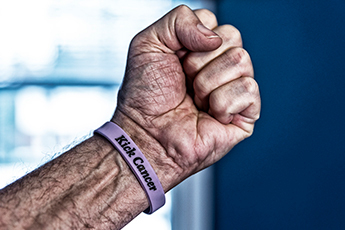What is a nephrectomy?

Surgery to remove all or part of a diseased kidney is a top treatment for kidney cancer. In many instances, this treatment gets rid of the cancer completely.

What is kidney removal surgery (nephrectomy)?
Nephrectomy is the medical term for kidney removal surgery. A urologist (a doctor who specializes in urinary system diseases), or a urologic oncologist (a urologist who specializes in cancer), performs this surgery.
What are the types of kidney cancer surgery?
There are several types of kidney surgery to treat kidney cancer. Your doctor will look at the stage of cancer and the tumor location to choose the best surgical approach.
Types include:
Partial nephrectomy: Known as kidney-sparing surgery, this procedure removes just the cancerous tumor. This treatment works best for early-stage kidney cancer.
Radical nephrectomy: Your surgeon removes the entire kidney, along with the adrenal gland and nearby lymph nodes and fatty tissue.
How do doctors perform nephrectomies?
Surgeons use different methods to perform nephrectomies depending on cancer spread, your overall health, and other factors. Surgery types include:
Open nephrectomy: Your surgeon removes a kidney (radical nephrectomy) through a large abdominal incision (about 10 inches). An open partial nephrectomy takes place through a 3-inch incision.
Laparoscopic nephrectomy: Your surgeon removes part or all of a kidney through several small (half-inch) incisions. Your surgeon uses a laparoscope, a long tube with a video camera on the end, to see inside the abdomen and perform the surgery. This approach is also known as keyhole surgery because the incisions are as small as a keyhole.
Robotic-assisted laparoscopic nephrectomy: Your surgeon uses laparoscopic techniques and a robotic device to remove the kidney or cancerous tumor.
What happens before a nephrectomy?
Your doctor will provide preoperative instructions. You may need to fast (consume only clear liquids) for a period of time before surgery. You may also need to drink a bowel cleansing solution to empty your bowels.
What happens after a nephrectomy?
Your recovery depends on the type of surgery and procedure. If you have an open nephrectomy, you may be in the hospital for one week.
Laparoscopic procedures are minimally invasive. This means you have smaller incisions, less blood loss and pain, reduced risk of infection, and a faster recovery. Minimally invasive procedures typically require a shorter hospital stay. You may go home within 1 to 5 days.
Here’s what you can expect during your hospital stay:
A urinary catheter (thin tube) will empty the bladder for about two days. You will also have intravenous (IV) lines to receive fluids and medications.
Depending on the surgery, you may have a tube in the incision site to drain fluids.
Once you’ve woken up from surgery, a nurse will get you out of bed to walk around. Movement helps prevent blood clots and pneumonia.
You’ll be encouraged to eat solid foods to get your digestive system working again. As your bowels start functioning, you may experience gas and cramping. You may also have shoulder pain. Gas used during laparoscopic procedures can irritate abdominal muscles and cause pain to shoot to your shoulder area.
A nurse will show you how to do breathing exercises using a device called an incentive spirometer. Breathing exercises help prevent respiratory infections.
What can I expect after I go home?
A full recovery from kidney surgery can take 3 to 6 weeks, depending on the extent of the procedure. You should call your doctor if you notice signs of infection, such as yellow discharge at the incision sites, or you develop a fever.
During recovery, you should:
apply ice wrapped in a towel to the incision site (keep the wound dry)
follow your doctor’s advice for a low-potassium or low-sodium diet (discover the 6 best food choices for people with kidney cancer)
not lift anything heavier than 10 pounds
get up and walk around, but avoid exercises that cause you to strain hard or breathe heavily
have someone else drive you places for 1 to 2 weeks after surgery
place a pillow over the incision when you cough or sneeze
resume light activities, including climbing stairs
shower, but don’t soak in a tub
stay hydrated by drinking 4 to 8 glasses of water a day (unless you’re told not to)
take pain medicine as prescribed
use stool softeners, if needed, to alleviate constipation
Can kidney cancer come back after surgery?
An estimated 20% to 40% of people who get surgery to treat kidney cancer have a cancer recurrence. The risk of metastatic kidney cancer (cancer that spreads to other parts of the body) is about the same (20% to 40%). Learn the top signs that kidney cancer has spread.
If you’re at risk for cancer recurrence or spread, your doctor may recommend sunitinib (Sutent®) after surgery. This targeted therapy attacks certain parts of cancer cells to stop them from growing.
From the community: “I'm checking in to let you know that it is totally fine to go on with one kidney. I was 39 when I had a similar diagnosis. I had the whole left kidney removed. The incisions are minimal and the scars all gone at this point (4 years later). I have lived a healthy life since then without any kidney complications and no reoccurrence of the cancer. Your body is made to live with only one without issue. The procedure you're having a very normal and these doctors perform it multiple times every day. I was out of the hospital the next day and walking up and down the street. I'm am of similar build as you and have been able to get along great. It was a good opportunity to improve my eating habits, improve my overall health. You'll want to limit the dense proteins from red meat, limit potassium and increase fiber. Running/cardio will help you with heart health which will become quite important. Google food ideas for healthy kidney and there is a ton of info. Kidney cancer.org as well as kidney foundation have tons of resources. Mayo clinic has a bunch as well. Its a positive sign that the cancer is contained and you have a great chance to never worry about this again. I'll keep you in my thoughts. Think positive, trust your doctors, keep reaching out to your support system and get ready to get back to life with a renewed sense of purpose.” – Inspire member
From the community: “This is my first post so I hope I am able to convey my experience with clarity. Let me first say, I'm sorry any of you have to endure such an operation. I am status post surgery, left radical ... The most difficult part for me was sitting up or getting up on my own. It was like I had no use of my stomach muscles and if I tried to use them it was very painful. What made it really bad was that I was allergic to the morphine (it was through an iv pump) and it made me ill (vomiting). It is most difficult trying to vomit laying down. The fear of choking consumed me. Thank God I had a roommate who was able to call for help for me. Not that this will happen, just be aware that using your stomach muscles will be very painful. If I had to go through this again and know what I know now, I would have my daughter or husband spend the night with me. Like previously mentioned, use a pillow and get up and moving as soon as you can. I was in on the 25th and out on the 28th am. I had an auction I wanted to attend and NOTHING was going to keep me from it. :) It is painful but try and push through it. You will be glad you did.” – Inspire member
Sources
Surgery for Kidney Cancer. American Cancer Society. February 2020.
Treatment of Kidney Cancer by Stage. American Cancer Society. February 2020.
Kidney Cancer: Types of Treatments. American Society of Clinical Oncology. August 2019.
Treatments for Advanced Kidney Cancer. International Kidney Cancer Coalition.
Laparoscopic Partial Nephrectomy Pre- and Postoperative Instructions. Johns Hopkins Medicine.
Laparoscopic Radical Nephrectomy Pre- and Postoperative Instructions. Johns Hopkins Medicine.
Surgery. Kidney Cancer Association.
Nephrectomy: Kidney Removal. Mayo Clinic. May 2018.
Kidney Removal: Discharge. MedlinePlus. April 2019.
What Is Recovery From Kidney Cancer Surgery Like. Moffitt Cancer Center.
Surveillance Strategies for Renal Cell Carcinoma Patients Following Nephrectomy. Reviews in Urology. 2006.
Renal Cell Carcinoma Metastatic to the Liver. Translational Oncology. October 2016.
What Is Kidney Cancer? Urology Care Foundation.
Disclaimer
Member comments are lightly edited for length and to remove identifying information but are otherwise reproduced as they appear in the community as part of public posts.
This content is for general informational purposes only and does not necessarily reflect the views and opinions of any organization or individual. The content should not be used as a substitute for professional medical advice, diagnosis, or treatment. Please consult your healthcare provider about any questions you may have regarding a medical condition.




